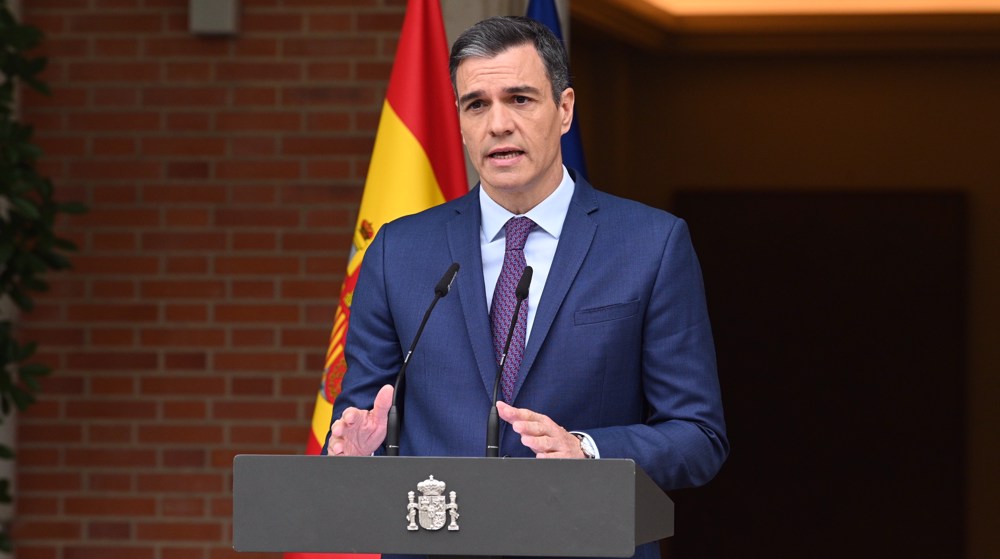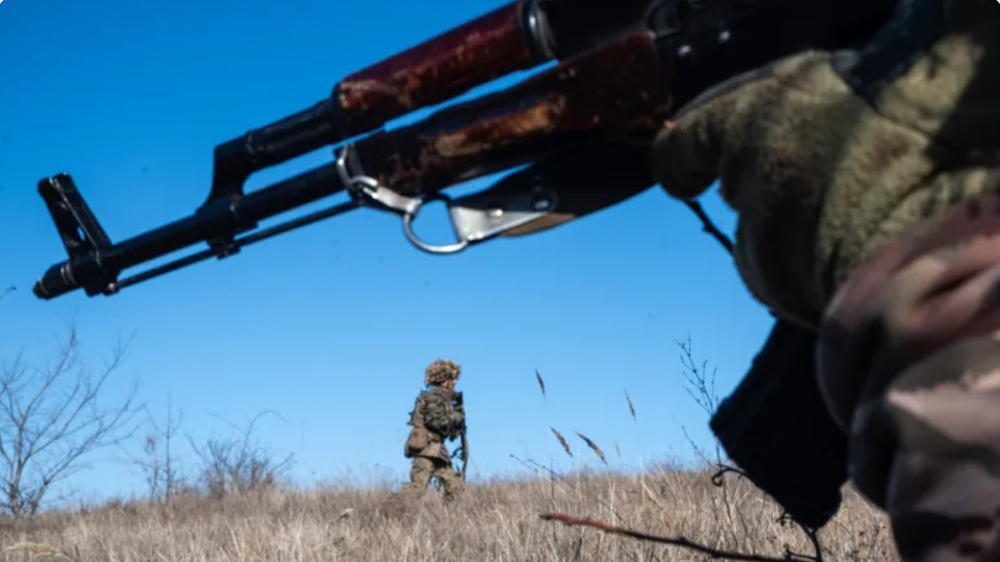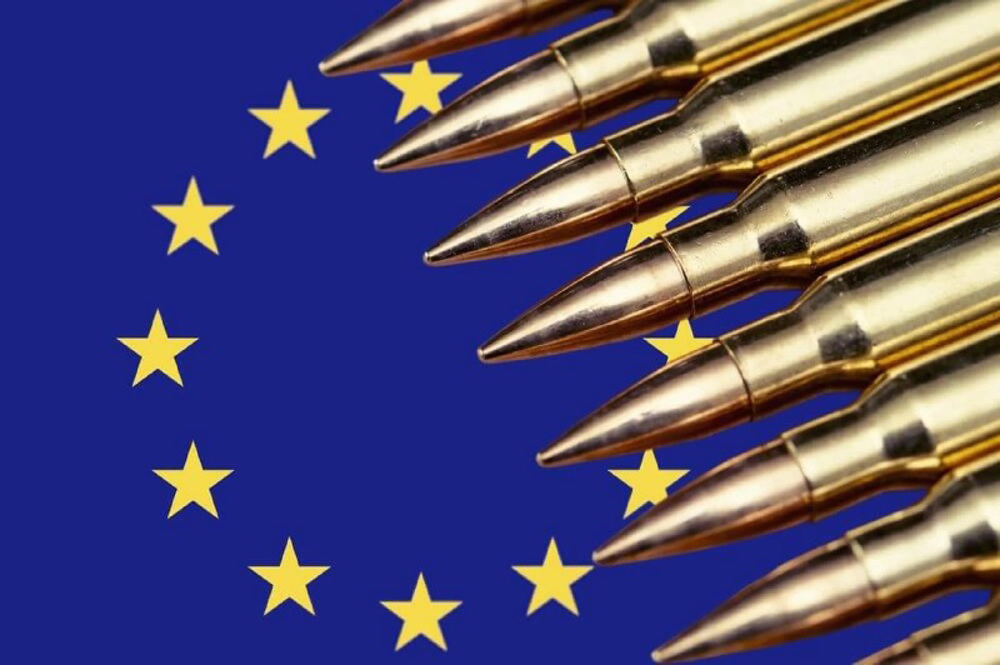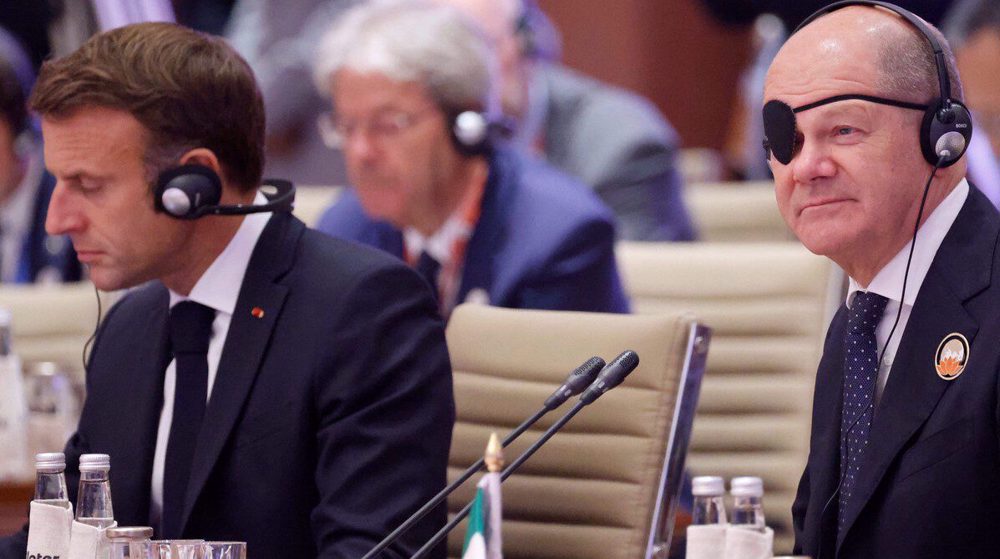EU in unchartered waters amid strained France-Germany ties
An influential German member of the European Parliament says strained ties between France and Germany are holding-up key decisions in the EU, including a trade deal and military aid to Ukraine.
David McAllister, chair of the European parliament’s foreign affairs committee, said the lack of contact between German Chancellor Olaf Scholz and France’s President Emmanuel Macron is causing delays on key decisions on a future trade deal with the Mercosur bloc of Latin American countries, and fighter jets and battle tanks.
The next-generation European battle tank is an integral part of the main combat system in Ukraine.
“At the moment we’re seeing a remarkable lack of internal coordination between Paris and Berlin. And that is not good,” McAllister, who is also a key figure in the opposition Christian Democrats party, said.
He stressed that while the Franco-German relationship was not “everything in Europe” but “things don’t work” without cooperation between the two states.
“In the end, Paris and Berlin need to agree to smooth things … and this is where I criticize the German government. I don’t think we have seen such little cooperation between Paris and Berlin as we are witnessing at the moment,” he said.
France and Germany have traditionally been seen as consensus makers within the EU.
Referring to an August speech in Prague given by the German leader, The Guardian cited McAllister as saying, “Can you imagine: he spoke for 45 minutes on the future of Europe – especially defense and security – and he doesn’t mention France? I mean, with whom will you organize your European defense and security if not with France? France is the leading military force in Europe and the British left us.”
The view is shared in France, with Georgina Wright, director of the Europe program at the Paris-based think tank Institut Montaigne.
“My view is, yes, relations are strained. Yes, there are key issues that they need to overcome, based on actual policy disagreement and approach. But we shouldn’t exaggerate it too much.
“I think in Paris there is a view that Germany just spends too much time talking to itself. So you’ve got a coalition that’s formed … the three parties that are very different, and they’re just spending so much time agreeing a new policy [at home] that by the time it gets to Brussels, they haven’t had time to discuss it with anywhere else. And actually, that’s something I’ve heard not just from France, but from other member states as well,” Wright said, referring to the coalition led by Scholz’s center-left Social Democrats, the Greens and the neoliberal Free Democrats.
The Franco-German duo has had temporary breakdowns in the past. Chancellor Gerhard Schroeder and President Jacques Chirac scarcely spoke to one another for several months after a row over EU farm policy in 1999. Chancellor Angela Merkel and presidents Nicolas Sarkozy and Francois Hollande had poor starts.

Spanish PM decries Trump’s plan to displace Palestinians from Gaza

US, Russian officials to meet in Saudi Arabia to discuss Ukraine war: Report

‘EU must not be bullied by Trump’: MEPs
Iran taps wealth fund to spend $1bn on subsidized food for households
Over 60 British MPs urge ban on imports from Israeli settlements
Netanyahu says ‘committed’ to Trump’s vicious Gaza scheme
Palestinians subjected to ‘severe torture’ in Israeli prisones: Euro-Med
Iran’s jobless rate down 0.4% y/y in Dec quarter to 7.2%: SCI
Hamas confirms senior military commander assassinated in Lebanon
Iran urges establishment of stability, sovereignty in Sudan: Qalibaf
Munich Security Conference chairman weeps over deepening division in NATO








 This makes it easy to access the Press TV website
This makes it easy to access the Press TV website